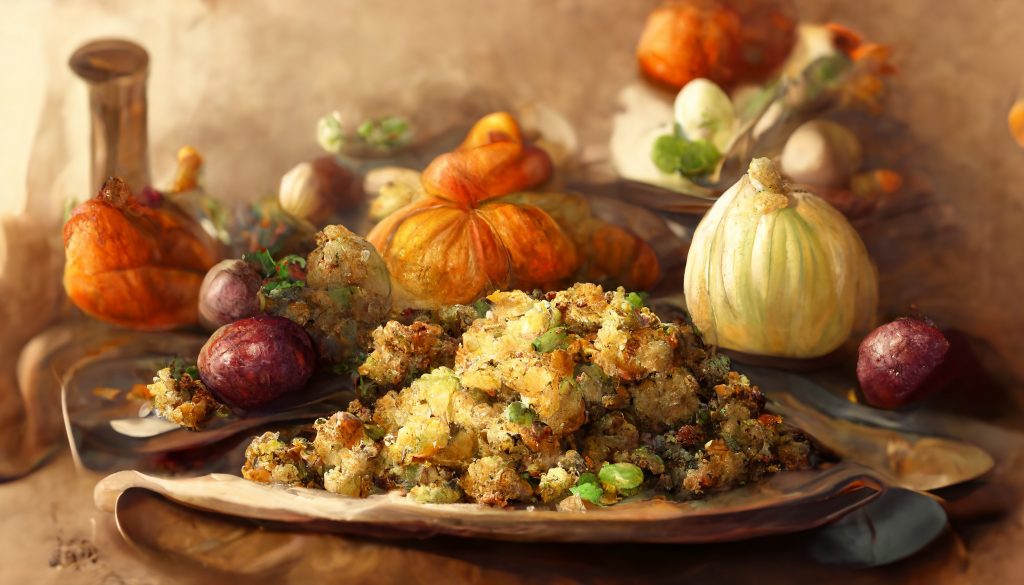
GPT-3 generated Thanksgiving recipes using a writer’s input and other recipes it reviewed on the internet. The results were mixed. One recipe required 32 ingredients. (Source: Adobe Stock)
Writer Praises Unusual AI-Generated Holiday Dishes, Others Say There’s ‘No Soul’ in Them
A story on nytimes.com reviews several Thanksgiving recipes spun up by an AI algorithm, using some traditional and some not-so-common ingredients as suggestions for the holiday meal. The cooking writer who instructed the AI praised some of the recipes and was surprised by the creativity that went into them. Other cooking writers were more critical in their reviews.
The Times had Open AI’s GPT-3 devise the customized menu, including measurements and step-by-step instructions, then presented it to four Times cooking columnists to rate.
Some of the recipes were not only nontraditional but were downright weird. The AI customized the recipe for the writer, Priya Krishna, who is Indian and told it the ingredients and types of food she typically cooks. Recipes included Pumpkin Spice Chaat, Green Beans with Miso and Sesame Seeds and Naan Stuffing—which she praised highly. The so-called Cranberry Sauce That’s Not Too Sweet and a Little Spiced also was praised, even if the name is not very creative. The Roasted Turkey With a Soy-Ginger Glaze earned kudos from Krishna as being a recipe that’s “easy to follow and will give you impressive results.”
DALL-E generated pictures for the dishes, but the cooking writer who prepared them had photos of what they actually looked like, and they were very different. For instance, a pumpkin chaat had a lot more character in the Dall-E image than in her actual cooked dish. The turkey, however, turned out about the same.
The other Times cooking writers were more critical of the recipes.
“We’re not out of a job,” Melissa Clark said. “I don’t feel anything eating this food,” Yewande Komolafe added. Genevieve Ko summed it up best: “There is no soul behind it.”
One can surmise that GPT-3 actually has value for whipping up recipes according to requested ingredients and other guidance. Anyone can give it a try, but lots of input is important, according to Mark Chen, an OpenAI scientist who guided Krishna on what to tell the program.
“The more details you provide in the prompt,” he said, “generally, the better the model performs.”
read more at nytimes.com







Leave A Comment